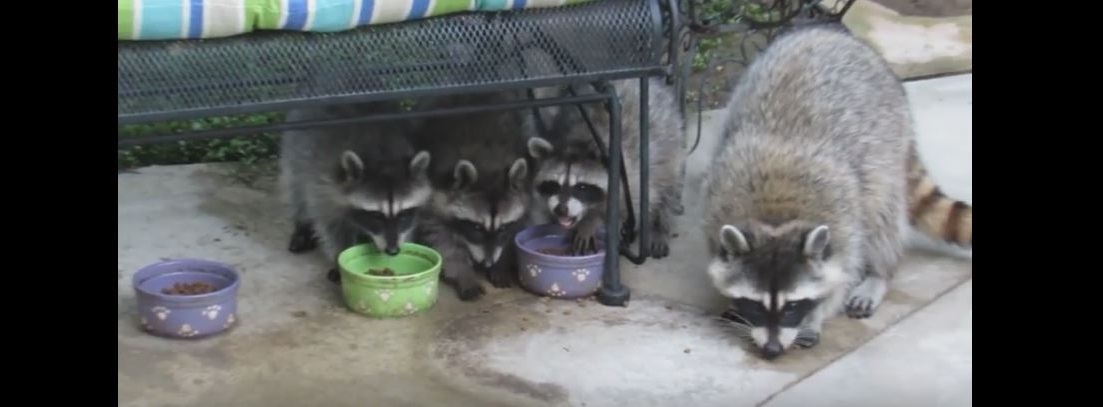Do raccoons live or travel in packs?
This question falls under the behavioural adaptations of raccoons to their surroundings. Therefore, let’s exploit some of the behavioural characteristics of raccoons.

• Raccoons are solitary animals. This means that they live alone in a given territorial area as in the case of males and mature females. However, a male can live in the same territory as a number of young females and when they are mature enough; each female finds its own territorial home. Same applies to a mother and her young ones. They will live together till the young ones are mature enough to survive on their own. Therefore, yes raccoons do live and travel in packs occasionally.
• They do not necessarily build their own nesting sites. They will take up dens abandoned by other animals or live in hollow trees, under houses and sheds, in the attic, brush piles, abandoned buildings and cars, or even under rocks. This is because they are not permanent dwellers and they may change locations as frequently as in nightly basis, except during breeding season when they may settle in one place for a longer period.
• Raccoons are omnivorous and eat a wide variety of foods in the wild. They include cherries, mice, beetles, crayfish, vegetable, berries, snakes, walnuts, worms, bird eggs, grapes among others. However, these animals cannot be limited to the wild; they are also well adapted to survive in the urban setting of interacting with human beings. They will ravage through dumping sites and trash cans to look for leftovers, pet food or even rotten food that has been thrown away.
• They are mostly active during the night. Thus they have excellent sight and hearing senses which they mostly require to hunt their food such as mice and grasshopper movements and also to sense danger from afar while they look for food. Their night vision ability is spectacular. And not ignoring the fact that raccoons are tactile animals since they use their hands in an almost similar way like humans do, for example picking up food.
• Raccoons find not big of an issue to climb a tree and to top it all to climb downwards head first. This trait makes them excellent at climbing as only a few other animals can descend a tree in such a manner. Most descend backwards so that they may not loose balance especially when landing.
• Raccoons can swim, though they don’t like doing so. They however prefer shallow waters where they can feel the bottom with their legs.
• Another behaviour portrayed by raccoons is sleeping in their dens when weather conditions are extreme and can survive a whole winter without feeding; but they do not necessarily hibernate.
Read the How to get rid of raccoons page for helpful information and to learn more about Do raccoons live or travel in packs?
Do raccoons live or travel in packs?

